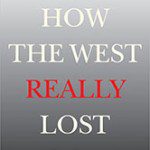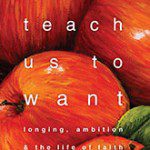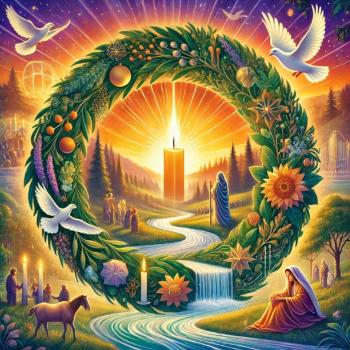Lectionary Reflections for the Sixth Sunday after Pentecost – July 20, 2014
Genesis 28:10-19a
Psalm 139:1-12, 23-24
Romans 8:12-25
Matthew 13:24-30, 36-43
The world is chock full of divinity. You can encounter the holy in the most unlikely places. Thin places, joining heaven and earth, abound for those for whom the doors of perception have opened. Life is messy, but it can be spiritually full in all its complexity when we open our senses to divinity within and beyond us. God is in all things, and all things are in God!
“Surely God was in this place, and I did not know it! How awesome is this place.” So proclaims the surprising mystic Jacob the Trickster. Jacob finds himself in a thin place where heaven and earth are joined and angels ascend and descend on a ladder to the heavens. It is interesting to note that the angels “ascend” to heaven. Earth is filled with divinity. Earth has its own angels. God is not far off or trapped in a far off heaven. Divinity is on earth as it is in heaven. You don’t need to go to heaven to find God; heaven is in this place!
Psalm 139 is one of the most majestic pieces of spiritual literature. The Psalmist discovers God everywhere. No place is without God’s presence. Even when we run away from God, we run into God’s hands. In the heights, God is there; in the depths, God is also present. God knows each of us fully, but God’s knowledge of us is liberating, not judging. Psalm 139 is a hymn to divine omnipresence, and the only condition of divine omnipresence is the recognition that God is everywhere and in all things.
Jacob’s encounter with holiness comes by pure grace. Did the Psalmist need to cultivate the experience of divine presence through spiritual practices? There are times grace simply happens. But, Damascus Road experiences also emerge – and are grounded for the long haul – through opening to God by prayer, meditation, hospitality, service, worship, and study.
The reading of Romans 8 continues the hymn to divine omnipresence. God speaks within us, inspiring us to seek our original wholeness. God also speaks through every living thing. All creation lives in hope for transformation, sharing in the same hope for God’s realm of Shalom. There is no dividing line between God and the world or human or non-human life. We may be the crown of creation, but we share the breath of life and the movements of the Spirit with all reality. Inspired by the Spirit, each thing in its own way leans in a God-ward fashion. Joined in an interdependent ecology of hope, all creation seeks fulfillment in relationship with the Creator.
There is a clear affirmation of creation theology and nature mysticism within the words of Romans 8. This is surely God’s world – and all things declare divinity – but only those with eyes to see and ears to hear can discern the holiness embedded in the non-human world. Yes, we can find God in nature, at the seashore and on starry nights, and this is good. But, a life of prayer makes such moments of holiness the norm rather than exceptional in our lives.
Still, as Jesus’ parable notes, growth is ambiguous, whether personal, communal, or global. The wheat and the tares are mixed: this is not just a matter of righteous and unrighteous persons – the latter being the “evil ones” – but our own personal righteousness and unrighteousness. Life is ambiguous and so are we. We are holy, but also wholly ambivalent and ambiguous at times. We are saints who also are sinners. Spiritual stature comes from recognizing the interdependence of life, and seeking to embrace the whole of our lives in light of God’s grace. If we destroy the tares, the weeds, the wheat will eventually die. Our power and wisdom comes from embracing the whole, not denying the parts. In the spirit of Psalm 139, darkness has a light of its own, for our darkness also can be a vehicle of creative transformation.
God is in this place. God is in the mixture of wheat and tares; flowers and weeds. God comes to us on the darkest night, when we like Jacob recognize our brokenness. God cries out in wounded nature. Wherever we are, God is present; and wherever we are, it is Beth-el, the house of God.












